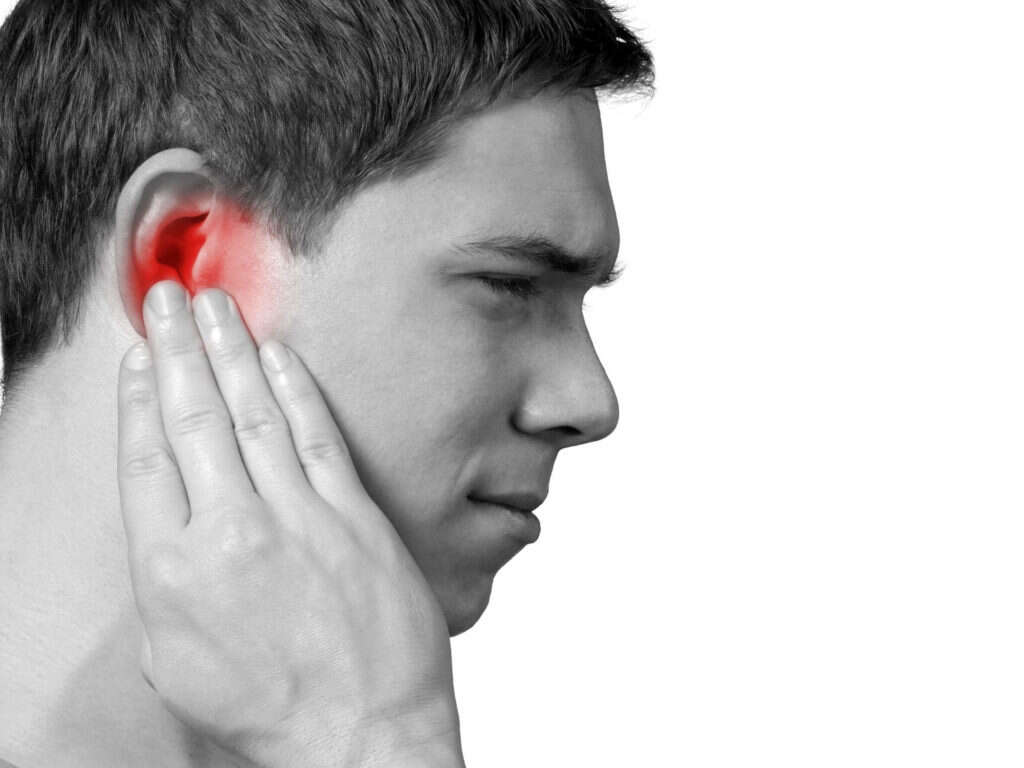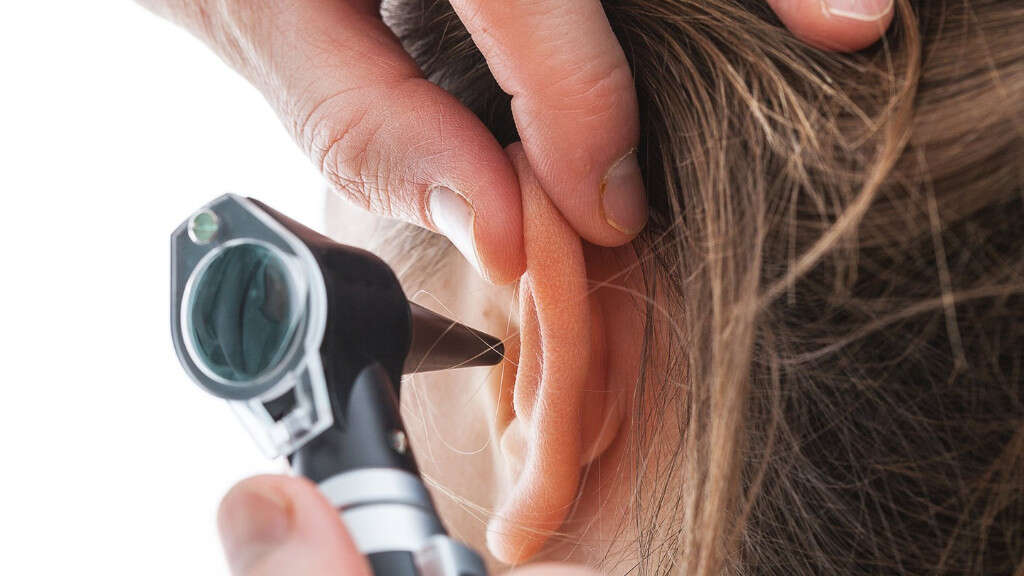10 Symptoms of Swimmer's Ear
Swimmer’s Ear is defined as the inflammation of the external auditory canal. It is also known as Otitis Externa and it is usually caused by an infection. The most common pathogen known to cause this condition is Pseudomonas Aeruginosa, but other pathogens (other bacteria, viruses and/or fungi) can be associated as well.
Many factors can end up causing this condition, but the most common one is when a patient has water “trapped” or retained in the ear canal. This is very common in swimmers, hence the name “Swimmer’s Ear”. Other conditions like increased humidity and a lack of ear wax (cerumen) may contribute to the development of this condition.

Symptom #1: Itchiness
We all get an itch from time to time and giving it a good scratch will often help provide relief. Itches can be caused by a wide range of things, most of which are only temporary. Sometimes, though, an itch can hang around for longer and can be a sign of an underlying problem.
An itchy ear is quite common and not usually something to be concerned about but if it is persistent then you might need to take a closer look. Itchiness of the ear is a common symptom of swimmer’s ear so you might need to arrange to see a doctor if symptoms persist.

Symptom #2: Fluid Discharge
Our body is full of fluids, all performing tasks that are essential to our health and survival. In the ear canal, we have earwax that does the job of collecting dust and microbes to help keep the ear safe.
The discharge seen in patients with this condition starts as a clear and odorless (without any particular smell) fluid but eventually can become thick as it turns into pus. If you are suffering from this symptom, you should seek medical attention for proper diagnosis.

Symptom #3: Pain In Ear
As unpleasant as pain is, it performs a very important function in that it lets us know when something is wrong. Without it, we might suffer serious illness or injury and not even know, and it is something that should not be taken lightly. If you are experiencing pain in your ear, it is a sign of something that probably requires your full attention.
Pain in the ear is a common symptom of swimmer’s ear. It will often get worse if the ear is pulled on while it can also make chewing very painful. Regardless of other symptoms, the pain alone is often enough to encourage patients to see a doctor.

Symptom #4: Pus
Pus is a thick yellow/green liquid that can be found around areas of infection. It consists largely of bacteria and dead white blood cells that have been spent in the battle against the infection. It is usually not something to be concerned about, but excessive pus is a sign of an infection that is out of control.
If you have pus oozing from your ear canal, then it is a sure sign of an infection like swimmer’s ear. Infections can spread and cause permanent damage if not treated so they should be treated seriously. If you do have pus oozing from your ear canal then you should arrange to see a doctor as soon as possible.

Symptom #5: Blocked Ear Sensation
This is a common symptom associated with swimmer’s ear. Patients tend to feel pressure and a feeling of fullness inside the affected ear. It usually affects only one ear and it can become quite annoying over time.
If your ear has become blocked because of swimmer’s ear, then you should allow a doctor or other medical professional to deal with it for you. Trying to remove the blockage yourself will not deal with the cause of the blockage and could even cause permanent damage. Instead, medical treatment is required that will tackle the cause as well as the symptom.

Symptom #6: Muffled Hearing
Sound travels as waves down through our ear canals until it reaches the eardrum. The eardrum will then detect these waves and relay the information to the brain so the brain can then translate the information into recognizable sounds.
This is a very effective solution that is very common in nature, but it does rely on the ear canal being free for the sound waves to pass through. Should the ear canal become blocked for any reason, it will create a barrier to the sound waves and this will reduce the ear’s effectiveness. Muffled hearing is a strong indicator of a blockage in the ear canal and this can be caused by swimmer’s ear.

Symptom #7: Pain In Face
When any condition gets worse, the symptoms it causes are likely to worsen and spread. This is often a case that the condition is getting beyond control and that it is time to see a medical professional if you haven’t already. While the pain associated with swimmer’s ear will tend to be around the ear, it can spread to affect the whole side of the face and the neck.
Treatment for swimmer’s ear will often involve painkillers to help the patient feel more comfortable. Remember, though, that painkillers are not without risk and should only be used when necessary. They should also only be used under the guidance of a medical professional.

Symptom #8: Fever
A fever is a very strong sign that your body has been invaded by a pathogen. Fever is one of the body’s main lines of defense against infection, heating up the body to make it an inhospitable place for unwelcome invaders. They are very effective and are often part of a system that’s responsible for literally saving our lives.
A fever is not common with swimmer’s ear and only usually arises in advanced cases. This makes it a strong indicator that you need to see a doctor. Remember that your inner ear is very delicate and can be permanently damaged by an infection, so it should not be taken lightly.

Symptom #9: Swollen Lymph Nodes
Located in strategic positions in the body, lymph nodes are a key component of our body’s immune system. They help produce and store antibodies and white blood cells that are responsible for attacking invaders. The lymph nodes help to keep the blood clean and free from unwelcome guests.
When we develop an infection, the lymph nodes spring into action to help deal with the problem. We don’t usually even notice this, but in the case of severe infections, the lymph nodes can be overworked. This can cause the lymph nodes to swell, a sure sign that a swimmer’s ear infection has reached an advanced stage.

Symptom #10: Tinnitus
Our ears generally do a very good job at helping us to know what is around us. We can detect a wide range of sounds even if our ears are not as sensitive as some other species in the animal kingdom. As useful as they are, though, our ears are not always perfect and unpleasant complications can arise.
Tinnitus is a sensation in the ear that is often described as a ringing sound. It is a non-specific symptom but it is usually found in patients suffering from Otitis Externa. Many conditions may cause this symptom to appear, so if you are suddenly hearing a high pitched ringing sound, you should seek medical attention for proper diagnosis.












